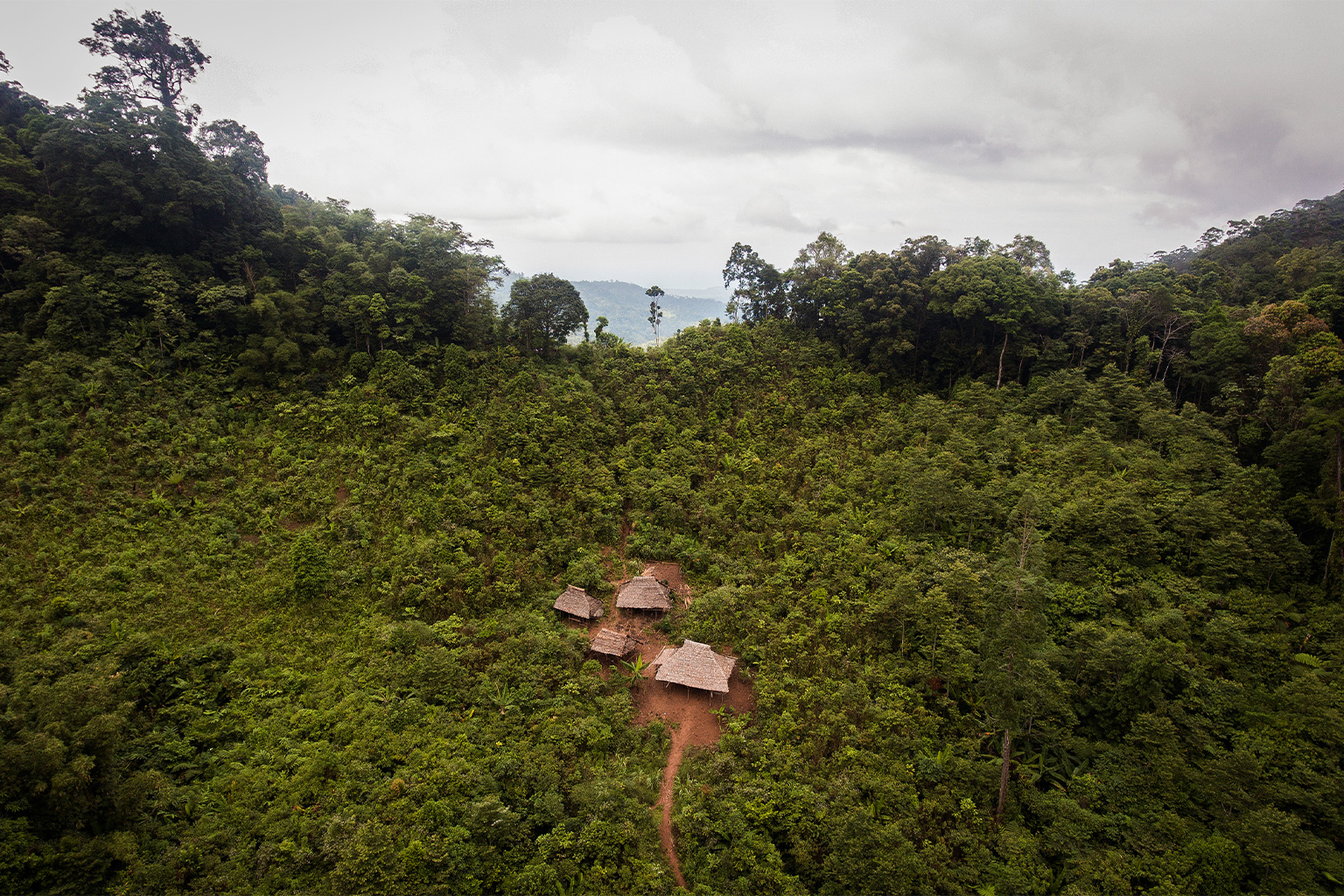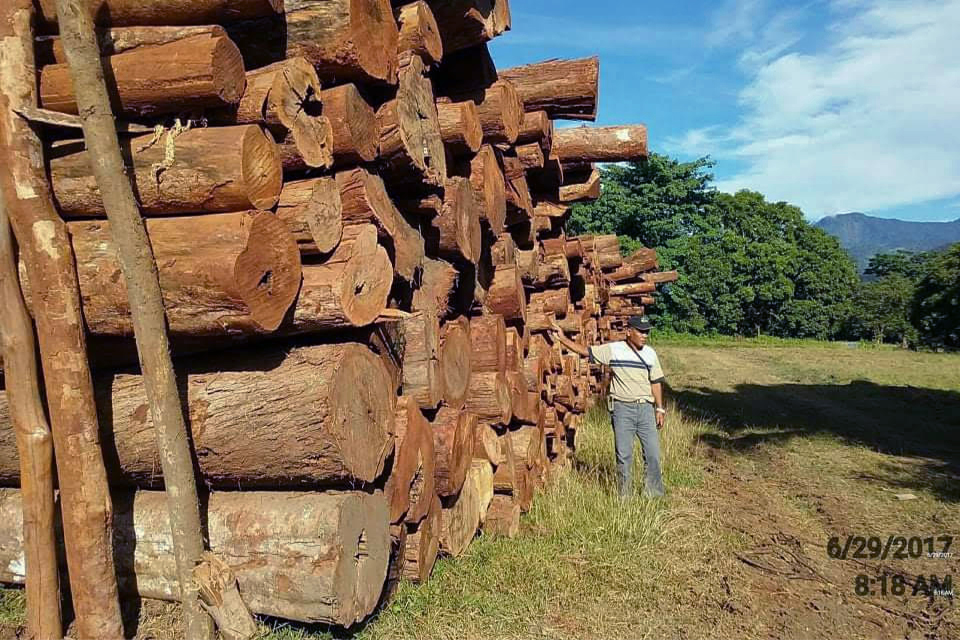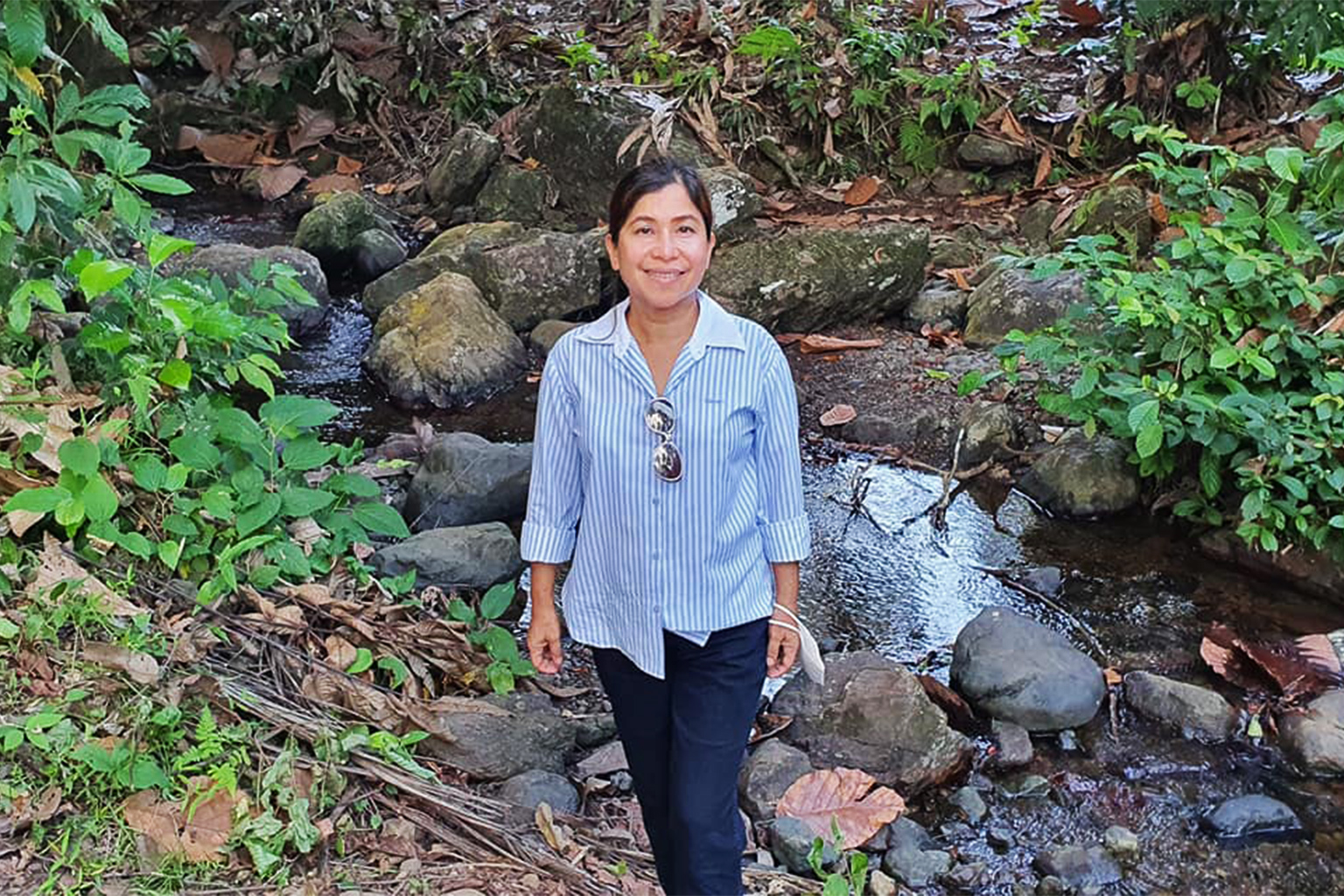- Following petitions by Indigenous communities in Palawan, the Philippine Supreme Court issued a writ mandating a nickel mining project and associated government agencies respond to the communities’ environmental concerns.
- The issuance of the writ is an initial step in a legal process activists say they hope will result in the permanent suspension of the nickel mine, which is operating within a protected area.
- While the legal process is currently on hold due to a court recess, the National Commission on Indigenous Peoples issued the mine a cease-and-desist order the same day the court issued the writ.
PALAWAN, Philippines — In a move celebrated as a victory by an Indigenous community that since 2005 has been fighting plans to mine nickel in a protected area, the Philippine Supreme Court issued a verdict mandating the company and government agencies involved in the project to address Indigenous concerns about forest destruction.
On August 16, 2023, the Supreme Court announced it had issued a writ of kalikasan against the Department of Environment and Natural Resources (DENR), and its attached agency the Mines and Geosciences Bureau (MGB). Also named were Ipilan Nickel Corporation and Celestial Mining, companies operating in Palawan’s Mount Mantalingahan Protected Landscape (MMPL). The writ, a unique measure in Philippine law, aims to protect Filipinos’ constitutional right to a balanced and healthy environment.
The writ was issued based on a petition from members of the Pala’wan Indigenous cultural communities (ICCs) in the town of Brooke’s Point in southern Palawan. They allege that the 25-year mineral agreement granted to Celestial Nickel Mining and Exploration Corporation, with Ipilan Nickel Corporation as its designated operator, is legally invalid because it falls within the MMPL, which is part of the Philippines’ National Integrated Protected Areas System and is therefore closed to mining. (Because the mining permit was granted before the area received formal protection, INC maintains that its operations fall within the law.)
“The mining operations by INC and Celestial Mining may cause irreparable environmental damage to the Mt. Mantalingahan protected area and the ICCs’ ancestral domain,” the Supreme Court said in granting the writ. The court added that the “lack of action” by environmental agencies “exacerbated” these operations, in turn imperiling Brooke’s Point residents.
The issuance of the writ, however, is just the first phase in a court process that activists say they hope will eventually lead to the cancellation of the mining project. In its decision, the court set a 10-day deadline for the government agencies and mining companies to provide evidence to dispel concerns raised by the petitioners. The Supreme Court confirmed by phone that all parties had submitted responses, but the court is now in recess until October. As of publication time, the court had not issued the temporary environmental protection order (TEPO) requested by the petitioners, and no date has been confirmed for the next hearing.

Threatened heritage
A nominee for UNESCO World Heritage designation, the Mantalingahan range spans 120,457 hectares (297,656 acres) and straddles five agriculture towns. The Supreme Court said the ongoing nickel mining also harms the residents’ lives, health and property in these areas, as exhibited by flooding and contamination of fishing areas, specifically in Brooke’s Point.
While the court process appears to have stalled for now, other agencies have moved more quickly. On Aug. 16, the same day as the Supreme Court announcement, the National Commission on Indigenous Peoples issued a cease-and-desist order to the mining companies, which will remain in effect until they provide proof they have secured Indigenous consent.
Lawyer Grizelda Mayo-Anda, executive director of the Palawan-based Environmental Legal Assistance Center, said it’s “unprecedented” for the Supreme Court to have issued a writ of kalikasan in the first place, because it reserves this legal remedy for situations where environmental harm endangers residents in multiple cities or provinces. “The Supreme Court may have recognized that due to the five municipalities covered by the MMPL, they could be considered equivalent to cities,” she told Mongabay by phone.
“The issuance of the writ of kalikasan could establish precedents for Palawan,” she said, adding that other people and groups, including non-Indigenous ones, in Palawan may refer to this case in the future to protect the province’s forests from mining and other potentially environmentally harmful threats.
In 1993, Celestial Mining secured a production sharing agreement with the national government to mine a 2,835-hectare (7,005-acre) area. Approximately 80% of the mining area occurred within the core zone of Mt. Mantalingahan, which is considered sacred by the Pala’wan people and also serves as an essential watershed for lowland communities and farmlands. Exploration occurred from 2006 to 2009, leading to the issuance of an environmental compliance certificate in 2010. That certificate expired in 2015, and in 2016, the environment ministry canceled the company’s compliance certificate due to its failure to begin mining operations within the required five-year window following the issuance of the permit.
Nevertheless, the mining firms continued to cut trees from February to May 2017 within their concession area.

In May 2017, under the leadership of then-mayor Mary Jean Feliciano, the Brooke’s Point municipal government issued a stoppage order to the company after around 7,000 trees were cut, leading to the closure of its facilities a year later. However, mining operations persisted despite orders from both the mayor and the environment department, and the absence of a certificate proving Indigenous consent.
In 2020, the environment department’s national office extended the mineral agreement until 2025, and the company formally complained that Feliciano had abused her authority, resulting in her suspension from office in 2021.
In 2022, the municipal board of Brooke’s Point requested that the bureau of mines investigate INC’s mining areas and suspend the mineral agreement during the investigation, but the bureau didn’t respond. Faced with this inaction and the absence of necessary permits, the municipal board elevated the issue to the Philippine president for review.
“The DENR and MGB, whose inaction over the strong pleas of the residents of Brooke’s Point shows their indifference to the rights of the ICCs to a balanced and healthful ecology,” the court said.
In a statement, INC said the issuance of the writ doesn’t disrupt its operations, as there’s no temporary environmental protection order in place. The company says the project predates certification requirements put in place with the 1997 Indigenous People’s Rights Act, and that the policy designating Mantalingahan as a protected area respects preexisting mining contracts. INC also said it refrains from operating in areas that overlap with the protected mountain range.
“INC remains actively engaged with all stakeholders, seeking a resolution of the prevailing issue while adhering to the tenets of responsible mining,” the company said.
Feliciano, who is currently serving as vice mayor, told Mongabay by phone that the issuance of the writ is an indication that the community is on the right track in its long-standing struggle against extractive giants. “That writ of kalikasan has given hope to me, to us, because for a long time, it seemed like we had lost all hope,” said Feliciano, who also heads the municipal board. “Our God has become our refuge because we feel like the national government itself is our adversary.

“The prompt action of the Supreme Court has truly given us renewed hope and inspiration to continue what we’re doing. That, in itself, is incredibly significant to us because it makes us feel that there is still a government agency we can turn to, one that will listen to us and not disregard our concerns,” Feliciano said.
Biodiversity scientist Aldrin Mallari said Typhoon Rai in 2021 ravaged 126,000 hectares (311,000 acres) of northern Palawan’s forests, leading to the loss of vital habitats essential for biodiversity to thrive and endure. This, he said, highlights now the crucial role of the southern forests for sustaining the province’s biodiversity. “There will be a greater responsibility on its shoulders because it will be the source of wildlings and so on,” he added.
Mallari said it’s important for wildlife populations to stay intact to preserve their genetic diversity, ensuring a continuous flow of their genetic lineage. However, the typhoon fragmented the forests, resulting in isolated small pockets of suitable habitats that form like isolated islands. “What we need to do is to connect these pockets of biodiversity to the south,” he said.
Failure to achieve this due to threats like mining in southern Palawan’s forests will cause interbreeding, resulting in unhealthy offspring among wildlife species in these isolated pockets and eventual population decline, Mallari said. The issuance of the writ is “an affirmation that even within the judiciary, the right of nature to exist is given importance,” he added.
Banner image: Ubre Tiblak, an Indigenous Pala’wan resin collector in the Mt. Mantalingahan Protected Landscape, by Keith Anthony S. Fabro for Mongabay.
A mayor in the Philippines took on a mine, and lost her job over it







